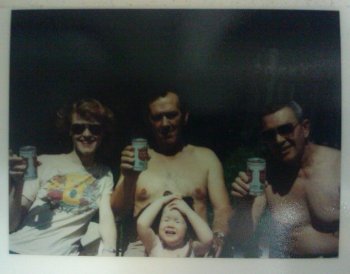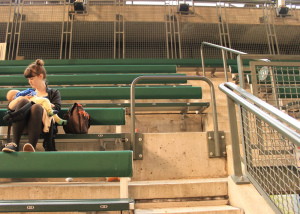I am not an astronaut and other failings
 Friday, March 1, 2013 at 3:52PM
Friday, March 1, 2013 at 3:52PM A question I heard on the radio today struck me: would your six year old self like you? I hope that in my case the answer is yes, but what I really got to thinking about was if my adult self would live up to the expectations of my childhood. And that answer is, unequivocally, no.
 Many girls, whether because of social constructs or through their own choosing, dream of and plan to have children when they're still kids, themselves, but I wasn't one of those. I didn't fashion wedding gowns from my mom's cast-off dresses and I didn't imagine myself caring for babies. Once, while walking to my mom's car with her after a school function, she remarked to one of my ten year-old classmates that the baby on the girl's hip -- her own little sister -- was positioned just right, and I remember the eye roll of annoyed pity I shot in her direction. I just won the science fair, but have fun with that baby.
Many girls, whether because of social constructs or through their own choosing, dream of and plan to have children when they're still kids, themselves, but I wasn't one of those. I didn't fashion wedding gowns from my mom's cast-off dresses and I didn't imagine myself caring for babies. Once, while walking to my mom's car with her after a school function, she remarked to one of my ten year-old classmates that the baby on the girl's hip -- her own little sister -- was positioned just right, and I remember the eye roll of annoyed pity I shot in her direction. I just won the science fair, but have fun with that baby.
You could attribute my disdain for motherhood (because, let's be honest, that's what it was) to any number of things: the fact that the feminism of the time wasn't particularly supportive of mothers (and my exposure to it WHICH I DO NOT REGRET FOR ONE MOMENT through my own mom), my disappointment in the way women were pigeonholed into the role whether they wanted to be or not. But the biggest reason was probably the fact that I had little faith in my own ability to rise above my family of origin and the world around me to turn out happy, functional people of my own making.
Now, that sounds really depressing, especially coming from a then-ten year old, I know. It was depressing. I was a depressed kid, situationally, chemically, but my line of thinking also felt plainly realistic. I believed what others told me -- that everyone was just doing his or her best -- and I assumed that anger, cruelty, addiction, apathy and all the other trappings of dysfunctional families were just some people's natural states, and the matter couldn't be helped. The best I could do was take the phone off at the root, so to speak. If others just did the same, I thought, we'd certainly have less unhappiness to deal with.
In my late teens and early twenties I adopted as reasons for childlessness the issues of overpopulation and environmental responsibility. Having kids was just irresponsible, I railed. I've heard it over and over and over since then, said by young women not (in any substantial ways) unlike I was at twenty to my face while I held a baby in my womb, in my arms, as my only child turned into two. They don't mean harm, and I don't take offense. I've thought the same thing, and don't totally disagree with them, in any case.
I don't mean that they're necessarily going to see the folly in their thinking; plenty of people choose not to have kids for exactly those reasons, justifiably, and stick contentedly to their choice. But I don't guess I'm the only one who looked for more socially acceptable, more enlightened, less pathetic-sounding reasons for childlessness than I'm afraid of myself and the world around me.
 attachment parenting,
attachment parenting,  childhood,
childhood,  children,
children,  dysfunctional families,
dysfunctional families,  kids,
kids,  parenting,
parenting,  therapy in
therapy in  me me me
me me me 



